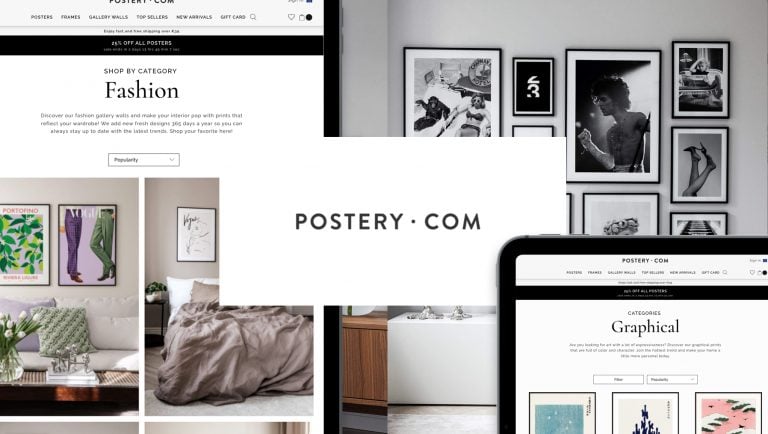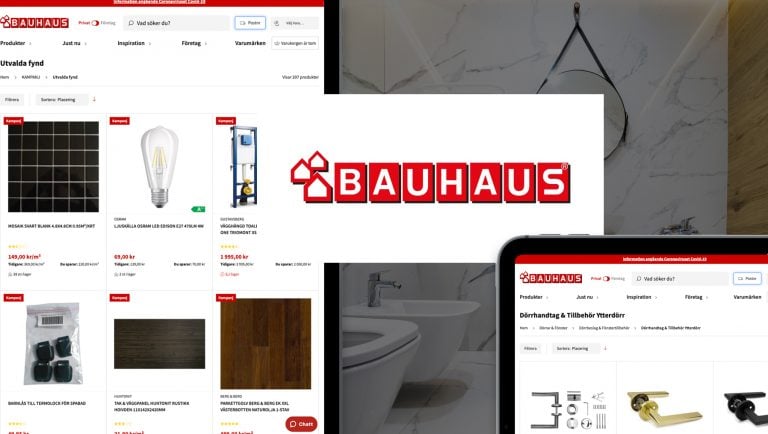Reports of e-commerce taking over in-store retail sales have been swirling for years, with Deloitte’s 2017 Holiday Survey confirming that 55% of shoppers this year would go online in search of presents. Just last year, the same report had 51% of consumers still turning to brick-and-mortar retailers, which illustrates the growing trend. One of the main reasons that online retailers have the upper hand is that they can offer more – from product options and variety, to delivery choices and ease of usage. An online presence is inarguably vital for B2C and B2B merchants alike, and innovation is the key to standing out in the (digital) crowd and success.

While B2C online sales have grown exponentially over the past few years, B2C sales are but a fraction of overall B2B sales. In fact, Statista revealed that B2B sales racked in a whopping 6.4 trillion euros worldwide, compared to 1.8 trillion euros for the B2C market. While this may seem like great news for B2B merchants, it’s no secret that the B2B world has lagged behind on the digital front, with many retailers stuck with legacy systems and manual methods. Our long-time client, DIY home improvement store BAUHAUS, launched in 1960 in Mannheim, Germany, with the unique selling point of “everything-under-one-roof.” BAUHAUS currently boasts 18 stores in Sweden and a website that serves both B2C and B2B customers.
Recently, BAUHAUS revealed their largest store in terms of turnover is no longer a physical store, but their online store – bauhaus.se, the digital storefront Vaimo has been busy with since 2011. While Germany is BAUHAUS’ largest market, for the first time, BAUHAUS’ digital Swedish store overtook their vast network of stores across Europe.
Here’s a look at what Vaimo has built for BAUHAUS B2C and B2B customers over the years to help them to achieve a position where their digital stores are taking over the physical ones in terms of turnover.
Click and Collect: BAUHAUS customers are able to make purchases online and collect their purchases at a local physical store of their choice.
Conservatory Guide: BAUHAUS and Vaimo created a guide to help BAUHAUS customers buy conservatories. The in-depth guide directs the customer through various choices that require consideration in order to buy the correct product. The design of the room, the type of roof, the dimensions, and the season are all important elements that require expert guidance to ensure accurate functionality. The next choice includes the selection of windows and sliding or folding doors. Also, depending choices made, the customer will be faced with additional options that may be mandatory or optional. The guide continually updates the customer with summaries of choices made, and each selection is accompanied by helpful descriptive text and imagery. The final product, along with accessories, is virtually assembled and may be placed in the shopping cart for online purchases. The final product includes vital documentation, such as drawings, assembly instructions, building permit information, and general information. The customer does not have to buy the product in order to access documentation about it; this can be sent separately to an email address. The conservatory guide is available here on the Swedish BAUHAUS site.
Shipping Solution: BAUHAUS Sweden plans to take care of all deliveries by themselves (in specific areas of Sweden) instead of using a partner in specific areas. This is a pilot project, live on January 10th, 2018, which will feature BAUHAUS’ own logistics solution with the support of a native internal app for BAUHAUS employees which will support deliveries for both B2C and B2B customers.
Bank ID Login: BAUHAUS implemented a secure login exclusively for B2B customers that uses login via internet bank, which requires higher security clearance.
New Pseudo Menu: Vaimo built another layer in BAUHAUS’ main menu, which means that categories with products can appear under different categories, re-ordered, without being duplicated. Different categories in the menu can lead to one product. The first level of categories is broken out across many categories and using a drag and drop interface, the menu levels can be changed.
External Account Management Per Session via an API: The B2B customer portal is fully tailored and API session-based, with its own set of payment options and a BAUHAUS credit card, available exclusively for B2B customers.
Cart Transfer Between Two Sites for Finalised Orders: BAUHAUS has its own bathroom brand, Camargue. When customers have selected items from this separate site, and they go to checkout, the session is transferred, with the cart and products, into the BAUHAUS checkout.
Seamless In-Store: BAUHAUS stores have large touch screens in various locations, where customers can place orders, browse products, search for products, and leave customer experience reviews. There’s even a chance to purchase products and arrange for home delivery. Customers can also send their carts through text message or email and finalise the checkout process on their own device.
Order Samples: There’s a selection of special and premium products that BAUHAUS sells exclusively. In order to boost sales, Vaimo implemented a feature called Order Samples. Customers can click a link on the premium product page, fill out an online form with information of where to send a sample floorboard (for example), and BAUHAUS will send it out for free. Customers have the opportunity to try it out and see how the product looks and then make a full order.
Back-in-Stock Notification: What’s unique about this common feature is that BAUHAUS can control who the notifications are sent to. If a product is out of stock, customers can request to be notified when it’s back in stock. BAUHAUS doesn’t send out a mass email to everyone who requested to be notified when the product is re-stocked; instead, BAUHAUS can note the number of products re-stocked, and then they can notify only a number of customers that matches the number of products they requested. This increases the customer experience. For example, if BAUHAUS has re-stocked 50 bathroom sinks, they will send emails to the first three customers who requested this item, who have requested a total of 50 bathroom sinks.
Online B2B Application: Vaimo has customised the Magento backend for BAUHAUS extensively over the years, making sure that the BAUHAUS staff have a colour-coded Magento admin panel that’s both easy to use and clear. Now Vaimo has decreased lead time from when a B2B client applies online for an account with BAUHAUS by integrating an automatic check from a credit company. BAUHAUS staff used to have to enter the potential client’s information by hand and then perform manual checks, but now, it’s all automated thanks to this highly successful feature.
Want to learn how to improve your eCommerce site? Book a call with your local experts at Vaimo.






